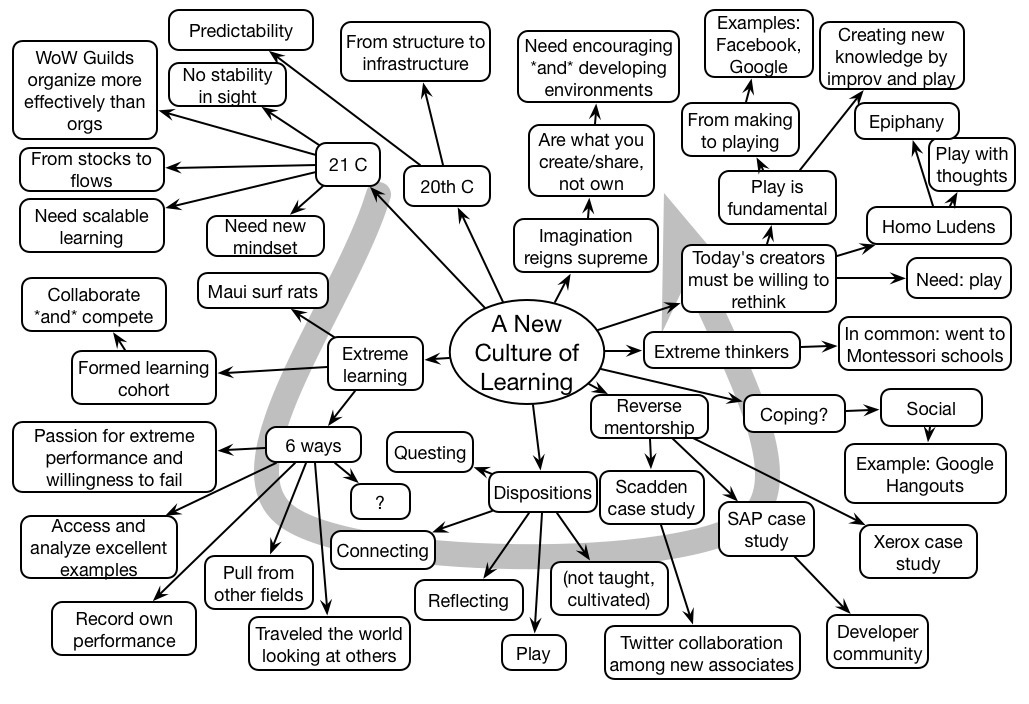John Seely Brown spoke eloquently on extreme learning for coping with extreme change, e.g. now. He talked about how extreme learning resembles play and challenged us to create environments where imagination could flourish.
Comments
Trackbacks
-
[…] John Seely Brown on AmazonCammy Bean’s notes on John Seely Brown’s KeynoteBig Think: John Seely BrownThe Best Way to Measure Company PerformanceWhy We Need Big OrganizationsHomo Ludens: A Study of the Play-Element in CultureDoes the Experience Curve Matter Today?John Seely Brown: Blended EpistemologyMindmapJohnSeelyBrown.com […]

Clark, thanks for your summary of the John Seely Brown talk, we do need a new culture of learning and it cannot be merely a revamped version of our 20th century model. Key to success here is avoiding controlling structures while still demanding quality thinking and results. We are natural learners, and to keep pace, the modern world organizations need to provide the systems and culture for our natural habit of leaning to flourish.
A new culture will develop as my grandchildren grow up with devices that “teach” at their pace, not what the “school” says is the time table.
The Kahn academy is on the forefront.
My personal research indicates it takes two generations before any technology is used ubiquitously. That is why my grand children are doing much better in school that either myself or my children. We are in the begining of a new culture of education and I see no mention on this great map!
Ara, exactly, we need to go back and match learning to the ways our brains work. Content dump/test isn’t it.
Bob, I’d disagree about Kahn Academy. It’s a nice learning adjunct, and it does allow practice at one’s own pace, and they’re now adding in assessment. Still, I like the adaptivity of, say, ALEKS (though flawed in that it’s not engaging). The focus seems to still be on passing No Child Left Untested, rather than meaningful problem-solving ala Jonassen. Heck, let them use Mathematica and give them important issues to solve, like how to make a roller coaster give some margin close to the maximum G force people can handle (and no more). And Khan isn’t necessarily about culture of learning, that’s got to come from forces external to a learning tool. It’s not about the technology…it starts with the culture and tech is a cognitive prosthesis/scaffolding.